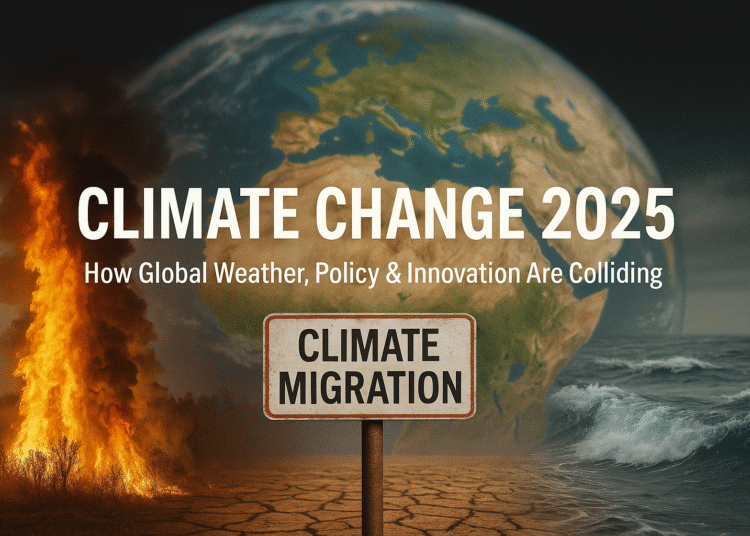How Climate Change Is Reshaping the World in 2025
From extreme weather patterns to global policy shifts, climate change remains one of the most urgent challenges facing humanity.
Climate change is no longer a distant threat — it’s a present-day crisis with visible consequences around the globe. In 2025, the signs are impossible to ignore: rising sea levels, record-breaking heatwaves, and a surge in climate-related disasters have prompted action from scientists, governments, and citizens alike.
Record Temperatures and Weather Extremes
This year has already witnessed the hottest February and March on record, with countries across Asia, Europe, and North America experiencing severe heatwaves. Simultaneously, unexpected cold snaps and intense storms have tested infrastructure and emergency response systems. Experts warn that such extremes will become more frequent and severe unless aggressive mitigation efforts are implemented.
Melting Glaciers and Rising Seas
Satellite data from early 2025 shows accelerated glacial melt in Antarctica and Greenland, contributing significantly to global sea-level rise. Coastal cities like Miami, Jakarta, and Dhaka are reporting more frequent tidal flooding events, while entire island nations are preparing evacuation and relocation plans.
Climate Migration on the Rise
Environmental displacement is now a growing reality. Millions have been forced to migrate due to drought, flooding, and agricultural collapse — particularly in Sub-Saharan Africa, Southeast Asia, and parts of Central America. As climate migration increases, it is reshaping demographics, international aid priorities, and border policies.
Technology and Innovation Respond
Despite the grim statistics, innovation offers hope. 2025 has seen rapid growth in carbon capture projects, solar energy adoption, and sustainable agriculture initiatives. AI is being used to optimize energy grids, predict extreme weather, and monitor emissions in real time. Governments and corporations are investing in green tech like never before.
Global Policy at a Crossroads
After the 2024 UN Climate Summit, many countries committed to stronger emissions reductions. But 2025 is the year of follow-through. Some nations have introduced carbon border taxes, others are phasing out fossil fuel subsidies, and climate litigation is increasing globally. Activists are calling for even bolder actions, especially from the world’s largest polluters.
The Role of Individuals
While systemic change is crucial, individual actions still matter. More people are adopting plant-based diets, reducing air travel, and choosing eco-friendly products. Social media movements are encouraging sustainable fashion, responsible consumption, and grassroots climate advocacy across generations.
Climate change in 2025 is not just a scientific or political issue — it’s a human one. The choices we make today will shape the planet for decades to come.
Follow WbTrends.com for ongoing updates on climate policy, environmental innovation, and the global movement toward a more sustainable future.





